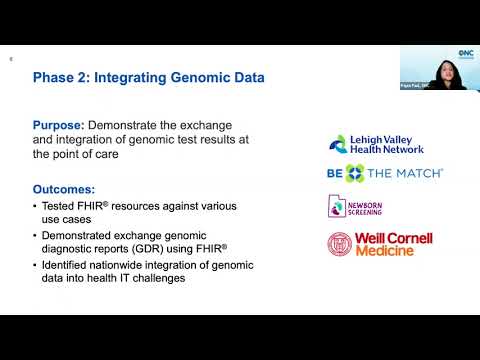Quotes
Transformation implies an order of magnitude improvement in performance, as opposed to incremental improvement. Digital implies the convergence of technologies in which the total is greater than the sum of the parts. Thus, digital transformation unlocks breakthrough or innovative business performance through the synergistic use of technology. Said another way,
digital transformation is what turns the lead into gold.
Andy Lehman
Quotes
You have to understand what are they worried about, what are their fears, what are they trying to do? If we don’t
engage with them that way, it doesn’t matter what technology we use.
Roy Rossin
Quotes
Information is the lifeblood of medicine and health information technology is destined to be the circulatory system for that information.
Roy Rossin
Quotes
The most evolutionary change coming to hospital rooms of the future is that they will be in your own home. For certain acute conditions, the
hospital room will come to you. You will be able to convalesce in the comfort of your own home by using portable technology and next-generation healthcare equipment. This will allow for high quality care to be rendered in a person's home by medical professionals both onsite and virtually.
Nick Patel
Quotes
In 10 years the electronic medical record will be the minor player, in terms of where a person’s health history lives. Most of that information will be kept on the phone or in a secure cloud, and the
patient will be highly engaged with collecting, curating and sharing that data. Most doctor visits will be like calling up a YouTube meets virtual human docs and there will also be an aspect of virtual reality.
Leslie Saxon
Quotes
With respect to healthcare, I see
digital transformation as a formula: simplified patient journey + streamlined employee workflow = a memorable experience. The ability to distill the patient touch points down to only what is necessary, make the behind-the-scenes workflow less cumbersome (reducing silos and friction points) and accelerate the entire throughput with carefully selected and complementary technology is the essence of digital transformation. Process is always upstream from technology, and any digital effort should take that into consideration.
Tom Barnett
Quotes
The first thing we ought to recognize is that
mobile is now part of the fabric — every day in everybody’s life. So if you’re not looking at mobile solutions, then you’re not really looking at all solutions.
Mal Postings Global CTO
Quotes
Like innovation, we see data as telling us how to respond to the future rather than only revealing what has happened in the past. The information, trends and feedback we gather from consumers and patients to clinicians and staff marks the goal post for where we want to go.
If the data tells a story, we decide how we can make that story a better one.Tony Ambrozie
Quotes
The vaccine rollout process is a classic case study for successful projects requiring
"people, process and technology." In this equation, the technology infrastructure of an electronic health record and network connectivity seem to be sufficient at most health systems and communities to support the cause. As a result, the most crucial elements to enable success is the project leadership and teamwork amongst all segments of the healthcare delivery system (people and process).
Michael Restuccia
Quotes
The physical space of the hospital will be gradually digitized until virtually every object and sensor becomes part of the so-called '
Internet of Things.' These innovations can broadly be categorized as either clinical or experiential, though some will be both. Clinical innovations will involve gathering ever more "signals" from the patient (infrared, sound, electrophysiology, pulse-oximeter, facial expression, etc.) to be sifted in real time through machine-learning algorithms that will help physicians refine their understanding of diagnosis and prognosis in ways we can only imagine today. Experiential innovations will allow health systems and their partners to take a page from Netflix, using the engagement opportunity of the acute care episode to stream digital content to patients and families through TVs, tablets and their own devices from home.
Daniel Durand
Quotes
It all comes back to
helping patients. That's the reason why we have an innovations office. We have some of the best physicians, scientists and engineers in the world right here in Cleveland who come up with brilliant ideas every day. And we need a way of bringing these to the market to help patients today and in the future. We want to reduce healthcare costs if we can come up with a less expensive way of doing something. We need to innovate around what we traditionally do but then also look at new avenues that we can explore to impact patient care.
D. Geoffrey Vince
Quotes
Developments in medical technology have long been confined to procedural or pharmaceutical advances, while neglecting a most basic and essential component of medicine:
patient information management.John Doolittle
Quotes
The most promising technology is AI combined with what we call "
digital endpoints" for each service we provide.
Digital endpoints are technologies like online scheduling, asynchronous video visits, and voice and application programming interfaces. The combination of AI and these endpoints mean that we can enable more sophisticated navigation, new business models, reduce friction and improve care delivery.
Aaron Martin
Quotes
The two areas that are changing… are
information technology and medical technology. Those are the things that the world will be very different 20 years from now than it is today.
Bill Gates
Quotes
As the chief clinical officer of a health system that includes five hospitals, I start almost every day by asking myself the question, "
What will we need hospitals for in 2030?" How much that we do today will be safely done either at home or in the ambulatory setting in the near future given advancements in point-of-care diagnostics, telehealth, artificial intelligence, nanotechnology, robotics, drones, 3D printing, virtual reality, 5G, etc.?
Daniel Durand
Quotes
[Physicians] are going to look at you sideways if you ask them to align, but if you
ask them to be the leaders and determine what the future will look like, they will rise to the challenge.
Lucy Hammerberg
Quotes
If we can reduce the cost and improve the quality of medical technology through advances in
nanotechnology, we can more widely address the medical conditions that are prevalent and reduce the level of human suffering.
Ralph Merkle
















